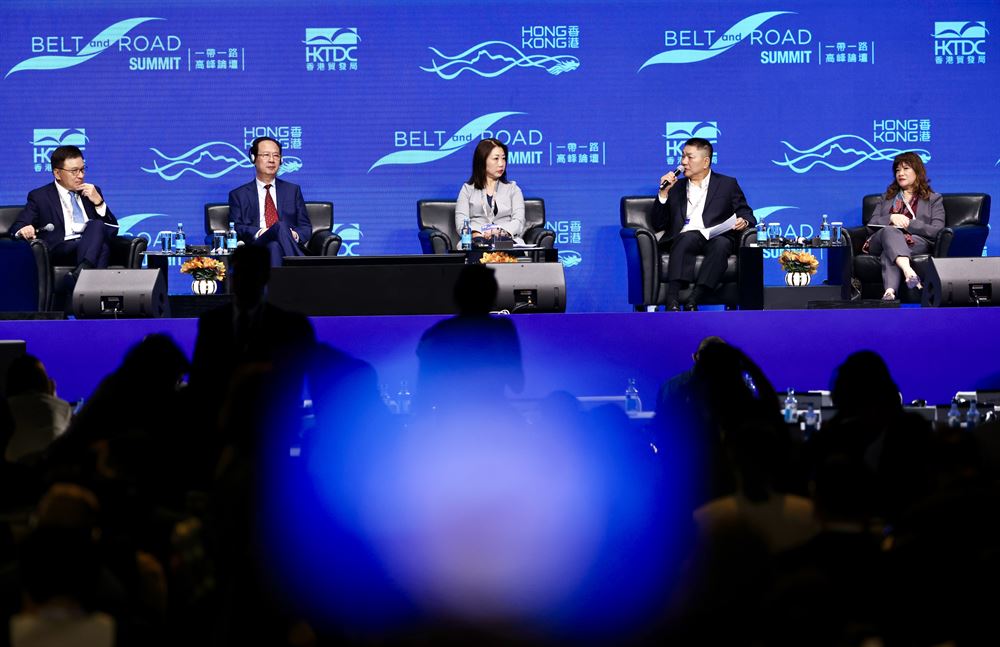
HONG KONG – Businesses in developing economies are eyeing Hong Kong’s financial services to play a bigger role as the city serves as an ideal platform for facilitating massive investment through the nation’s flagship infrastructure project the Belt and Road Initiative (BRI).
The companies’ path has been smoothed by Hong Kong’s strengths in funding, with the developing world’s growth potential suggesting vast opportunities await, said Ding Yanzhang, chairman of Power Construction Corporation of China, which is also known as PowerChina, during the ninth Belt and Road Summit in Hong Kong on Wednesday.
Launched in 2013, the BRI has created abundant success stories across developing countries., . In Malaysia, a 640 km-railway project under BRI named East Coast Rail Link is going to connect the country’s east and west coasts. In Cambodia, a new expressway has reduced travel time from the capital, Phnom Penh, to its southern coast from five hours to two.
READ MORE: HK set to shine in the next golden decade of BRI
“As the BRI opened up so many business opportunities, I believe Hong Kong can fully leverage its unique advantages in terms of financial services,” Ding said, citing PowerChina as a prime example of the beneficiary. In recent years, the infrastructure contractor has issued nearly $3 billion in bonds in Hong Kong. Ding said these debt financing funds have delivered “positive results” in many BRI-related projects.
Addressing the same event, Dato’ Seri Cheah Cheng Hye, co-chairman and co-chief investment officer of Value Partners Group, said the Hong Kong Special Administrative Region is an ideal platform and the most qualified city in China to launch a “financial version of Belt and Road”.
For the investment veteran, the booming BRI-related market means huge financing demands. “In the developing world, especially in the Middle East, and countries like Indonesia, they are still undergoing industrialization and far from having excess capacity.”
He also highlighted Hong Kong’s role in promoting renminbi internationalization as the Chinese currency is expected to gain further international prominence amid deepening partnerships within the BRI. As the world’s largest offshore renminbi hub, Hong Kong’s total offshore renminbi deposits amounted to around 1 trillion yuan as of June, Hong Kong government data showed.
ALSO READ: HK finance and green tech expertise a boon for BRI countries
Shinta Widjaja Kamdani, chief executive officer of Sintesa Group and chairwoman of the Indonesian Employer’s Association, said economies involved in the BRI have growing interests in cooperation in areas including digital economy, agriculture, and finance.
She called for more effort on regulatory fronts to provide better transparency, accountability, and communication within the BRI economies.
Clara Chan, chief executive officer of Hong Kong-based Lee Kee Group, said the city’s professional services and gateway location could play a vital role in helping businesses involved in the BRI on their journey towards the mainland market, especially the Guangdong-Hong Kong-Macao Greater Bay Area.
With a population of more than 86 million, the 11-city cluster’s economic output topped 14 trillion yuan last year, according to data from the Guangdong Provincial Office of the Leading Group for the Development of the Guangdong-Hong Kong-Macao Greater Bay Area. This marked an increase of 3.2 trillion yuan from 2018.
READ MORE: Foreign officials stress HK’s logistics, finance strengths for partnerships
As a regional economic powerhouse comprising the country’s financial center Hong Kong and nearby technology hub Shenzhen, the GBA is in a “very good position” regarding talent, market, finance, as well as innovation and manufacturing, Chan said. “This is the region that we cannot forget because it plays a very important role in connecting China and the Belt and Road countries.”
Contact the writer at evanliu@chinadailyhk.com


